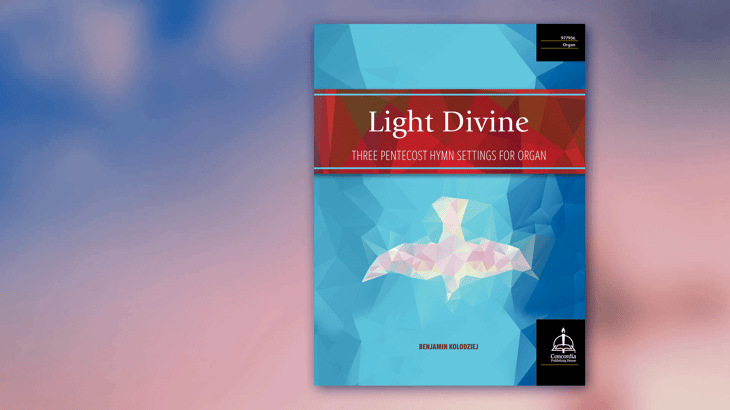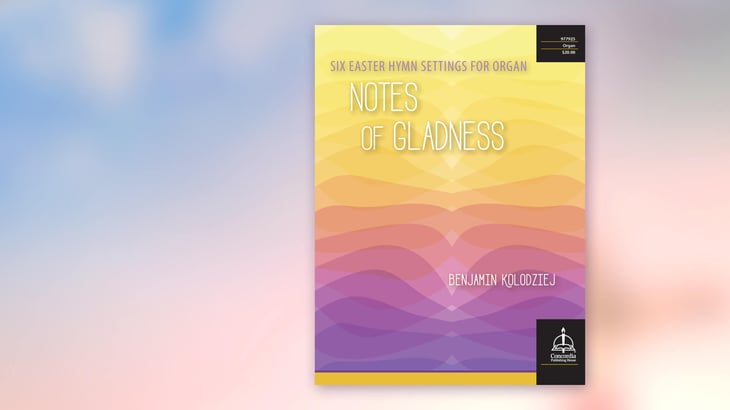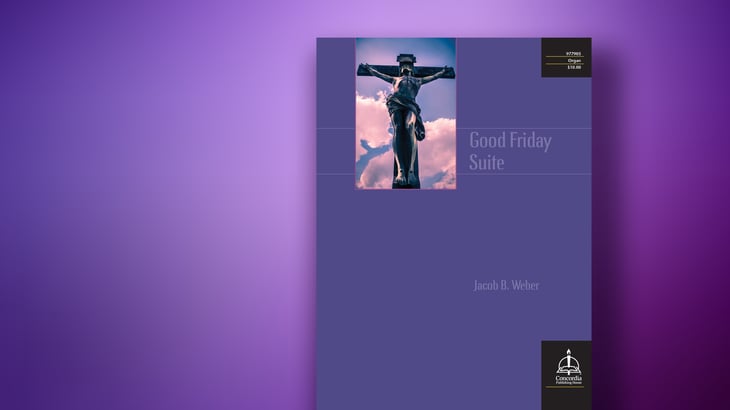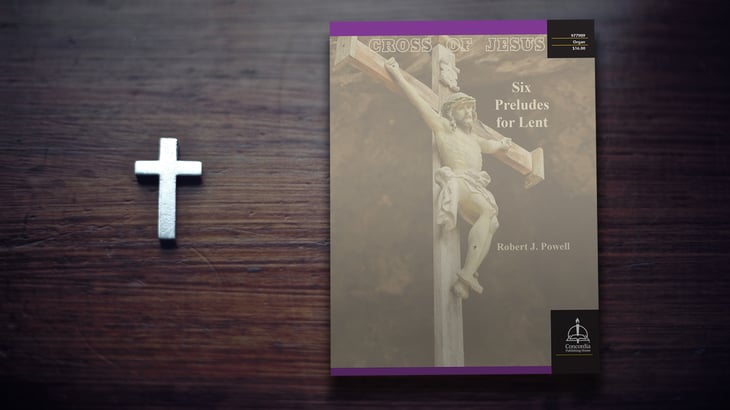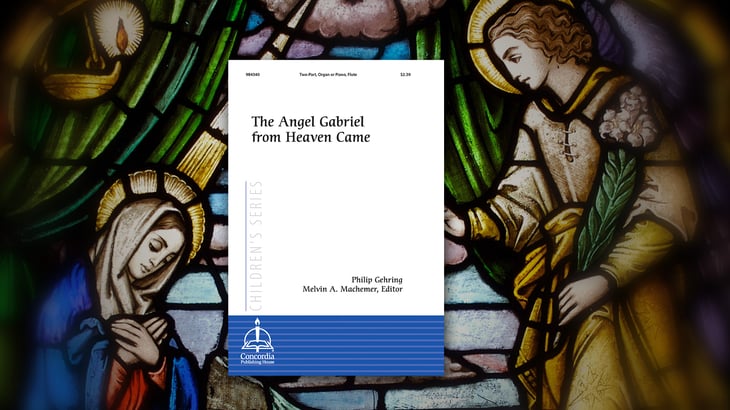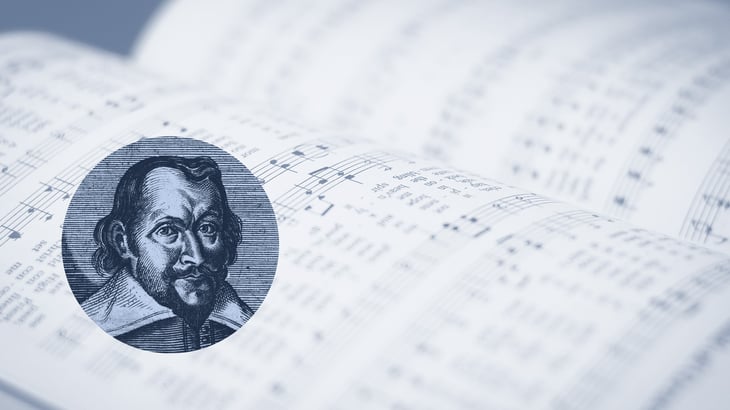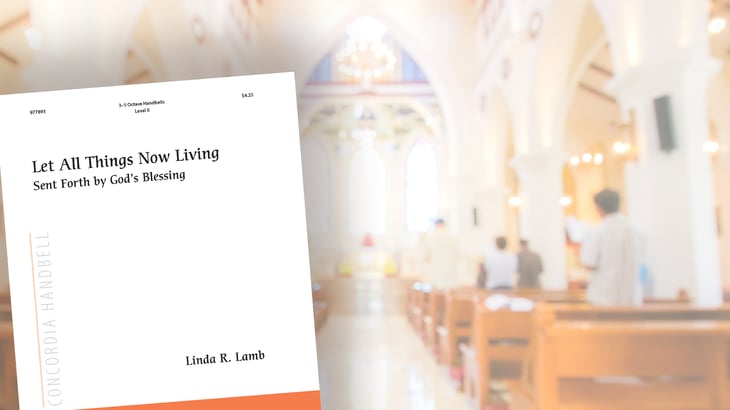Recent Posts by Nathan Grime
Music of the Month: Light Divine: Three Pentecost Hymn Settings for Organ
The Day of Pentecost marks the end of the season of Easter. The word “Pentecost” literally means “fifty,” as it falls fifty days after Easter Day.
On the Day of Pentecost, Jesus’ apostles were filled with the Holy Spirit and given the ability to speak in many languages, which they used to spread the Gospel to all people and cultures. The Day of Pentecost marks the beginning of the “Time of the Church” in the Church Year—that half of the Church Year where the paraments in the sanctuary remain green and God’s people hear, in more detail, about the works and ministry of Jesus.
Music of the Month: Notes of Gladness
This collection by Benjamin Kolodziej features Easter organ settings of moderate difficulty. Each employs various musical textures to convey the spirit of the hymn texts to the congregation. From meditative and lush treatments of LANCASHIRE and VRUECHTEN to a sprightly trio arrangement of BESANÇON to a setting of DUKE STREET suitable for showcasing a solo trumpet, organists will find these settings invigorating and fun to play.
Music of the Month: Good Friday Suite
Good Friday Suite features four hymns: “O Perfect Life of Love”; “Sing, My Tongue, the Glorious Battle”; “The Royal Banners Forward Go”; and “O Darkest Woe.” The suite may be played from start to finish or each as an individual prelude. The suite is especially useful for a Tre Ore service.
Composer of the Month: Robert Powell
Robert J. Powell (b. 1932) began writing music when he was in high school and, since then, has had more than three hundred compositions published by sacred music publishers. His works range from organ and choral compositions to handbell and instrumental pieces.
Powell currently serves as organist at Church of the Redeemer in Greenville, South Carolina. Like many churches across the country, the COVID-19 pandemic has forced his congregation to adapt their musical practices on Sunday mornings.
Music of the Month: Cross of Jesus: Six Preludes for Lent
Robert J. Powell has composed a well-crafted and accessible organ collection for Lent, Cross of Jesus: Six Preludes for Lent. This book offers settings that are appropriate to the season, such as “Go to Dark Gethsemane,” “Jesus, I Will Ponder Now,” and “Cross of Jesus, Cross of Sorrow.” Each setting offers a series of key and tempo changes. The final setting, “Rock of Ages, Cleft for Me,” offers a joyful, majestic ending to an otherwise somber piece.
Music of the Month: The Angel Gabriel from Heaven Came
“The Angel Gabriel from Heaven Came” is a brand-new choral setting composed by the late Philip Gehring (1925–2020). Using the text and tune of Lutheran Service Book 356, this two-part treble choral setting is ideal for church choirs working with limited numbers this Advent and Christmas.
Composer of the Month: Johann Crüger
Johann Crüger (1598–1662) was a seventeenth-century German Lutheran composer whose influence dwells richly in Lutheran Church music even today. He studied music across Europe as a teenager and eventually settled back in Germany, where he studied theology in Wittenberg and became cantor at St. Nicholas Church (Nikolaikirche) in Berlin. He served there for forty years until his death.
During his life as a church musician, Crüger produced dozens of Lutheran chorale tunes. Among his most famous work in today’s Church is his collaboration with German-Luther hymnwriter Paul Gerhardt in the final twenty years of Crüger’s life.
Composer of the Month: Sandra Eithun
Sandra Eithun has composed dozens of handbell and piano compositions for CPH Music, most recently “Four Communion Hymns for Twelve Bells.” This collection continues a series of handbell music written for twelve bells, joining books with Advent, Christmas, and Easter themes. She also serves as the Director of Music Ministry at First Congregational United Church of Christ in New London, Wisconsin, a position she’s held since 1992. She is the organist for the congregation, accompanies the vocal choir, and directs three handbell ensembles.
Music of the Month: Let All Things Now Living
“Let All Things Now Living” gets a lively calypso setting in this arrangement, which expresses the excitement of the text. A more tranquil, hymn-like second stanza leads back to a dance-like ending. The tune THE ASH GROVE is used with many texts, including “Sent Forth by God’s Blessing,” making this a useful arrangement throughout the Church Year. Level II.
Composer of the Month: Martin Franzmann
Not unlike many American Lutherans in the upper Midwest, Martin Franzmann (1907–76) was the son of a Lutheran pastor. Born and raised in Minnesota, Franzmann continued his undergraduate and seminary education in Wisconsin and ultimately taught at Concordia Seminary in St. Louis, Missouri.

